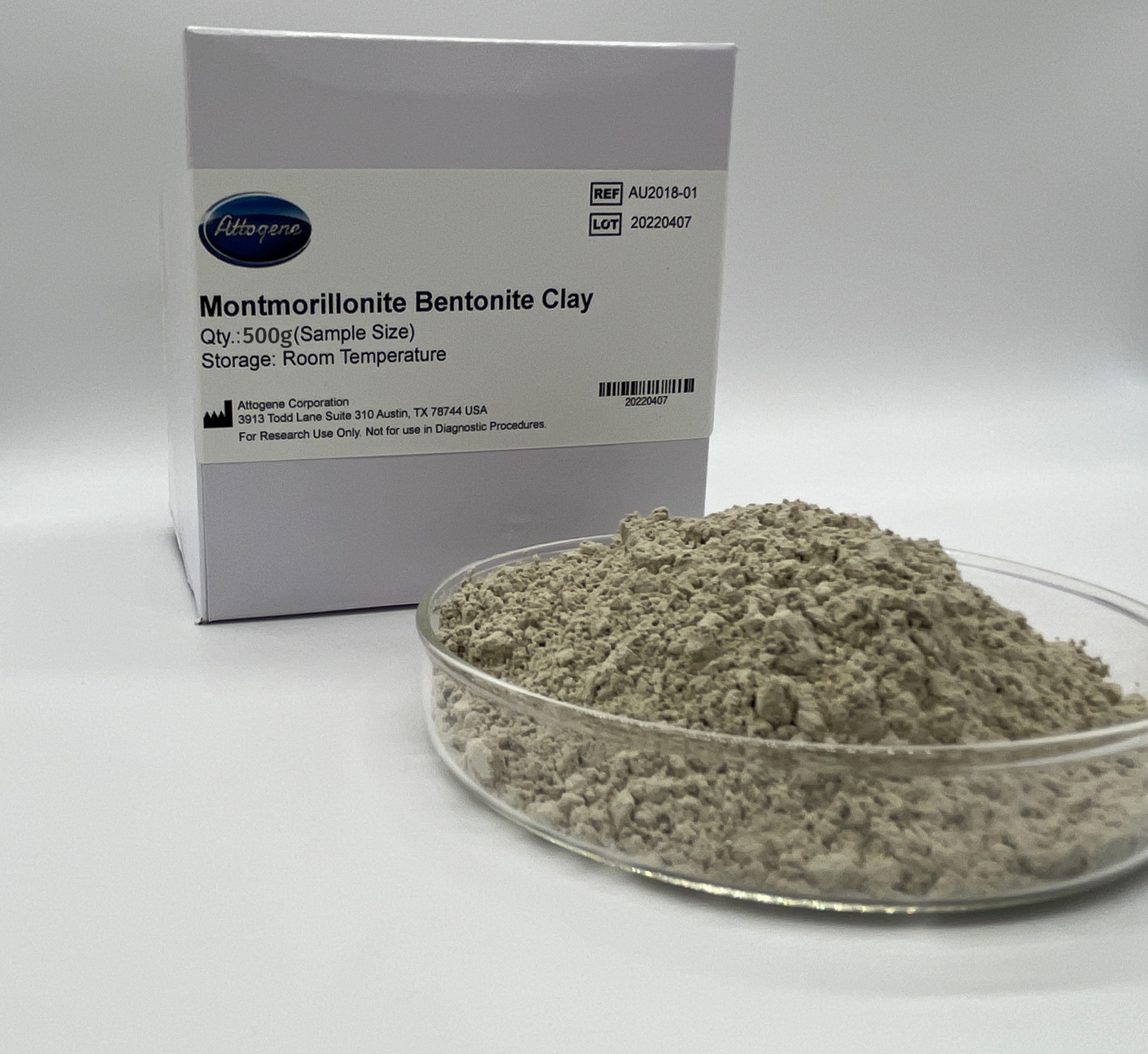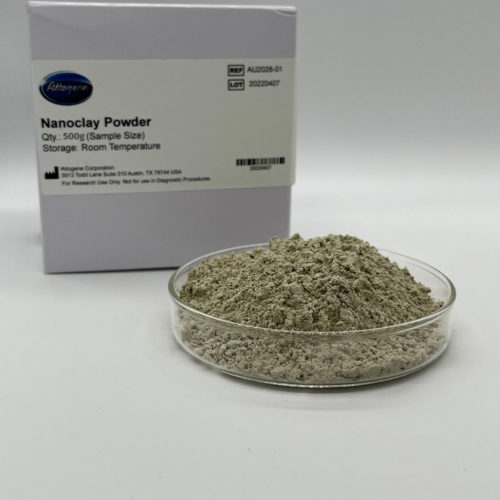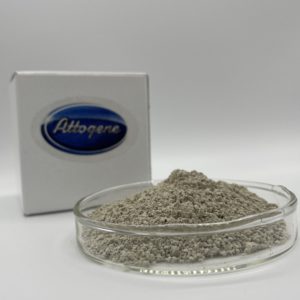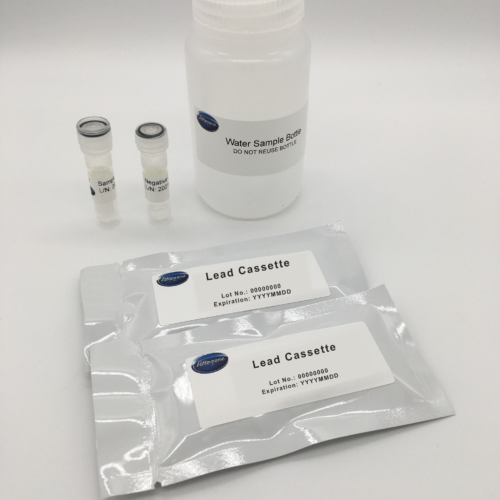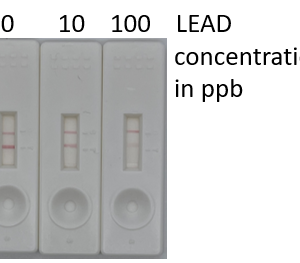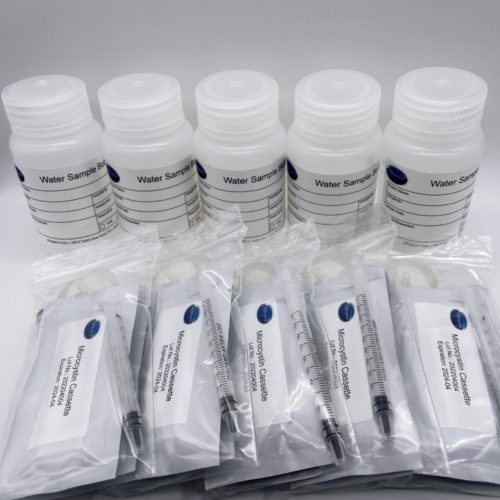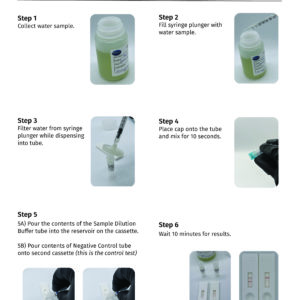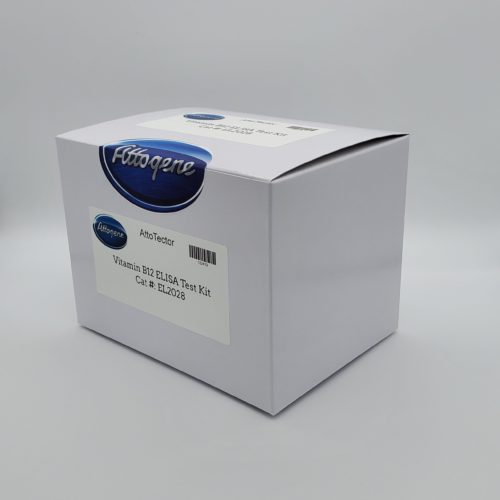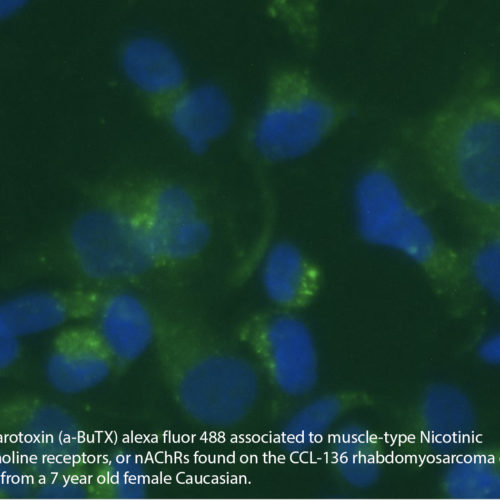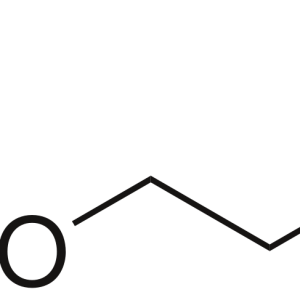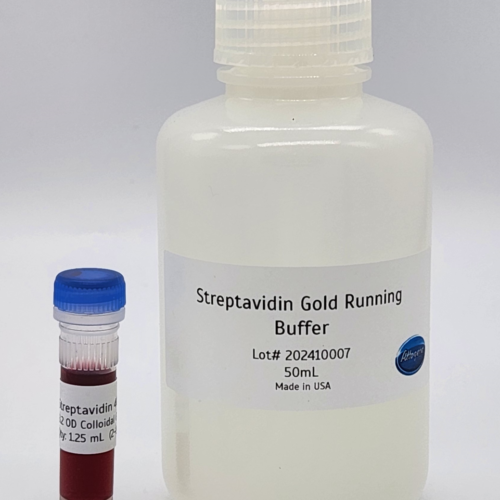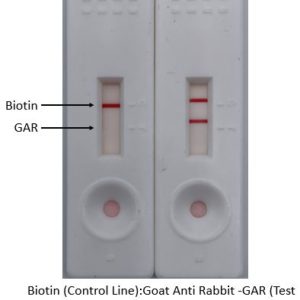Montmorillonite Bentonite Clay
$300.00
In Stock & Ready to Ship
Promotes flocculation of cyanobacteria cell debris, binds residual phosphate compounds and promotes gradual settling of the cyanobacterial biomass on the sediment.
- Sample Package Size: 500g
- Inquire for bulk prices: sales@attogene.com
Attogene’s Montmorillonite Bentonite Clay binds toxins with high affinity and high capacity. Montmorillonite has been shown to be the active ingredient in bentonites. The proposed mechanism of action of Attogene’s Montmorillonite Bentonite Clay is through the adsorption of toxins (mainly onto the interlayer spaces of montmorillonite). Attogene’s Montmorillonite Bentonite Clay is a common anti-caking agent in animal feeds to adsorb aflatoxins and diminish their bioavailability. Its composite for application in drug system can be formed through the utilization of anionic, cationic, and nonionic surfactants.
Bentonite is a promising rock of clay which is found in nature. It is a major source of montmorillonite in nature. It is a rock produced of highly colloidal and plastic clays mainly comprised of montmorillonite. In addition to montmorillonite, bentonite may compose of some amount of crystalline quarz, cristobalite, and feldspar. Montmorillonite nanoclay is used as a drug carrier system and as an additive. Its composite for application in drug system can be formed through the utilization of anionic, cationic, and nonionic surfactants. These are used to improve basal spacing resulting in organo clay to be utilised in drug loading and drug release.
Inquire for bulk prices or samples: sales@attogene.com
You may also like…
Nanoclay Powder
$300.00Promotes flocculation of cyanobacteria cell debris, binds residual phosphate compounds and promotes gradual settling of the cyanobacterial biomass on the sediment.
- Sample Package Size: 500g
- Inquire for bulk prices: sales@attogene.com
Microcystin Detection Kit (Rapid – Recreational Water)
$150.00- Screening of Microcystins in water samples at 6 ppb or lower
- Format: 10 tests (5 tests/5 control)
- Water Sample Bottles
- Negative Control
- 1mL Syringe
- Sample Dilution Buffer also sold separately
- Sample Filters
